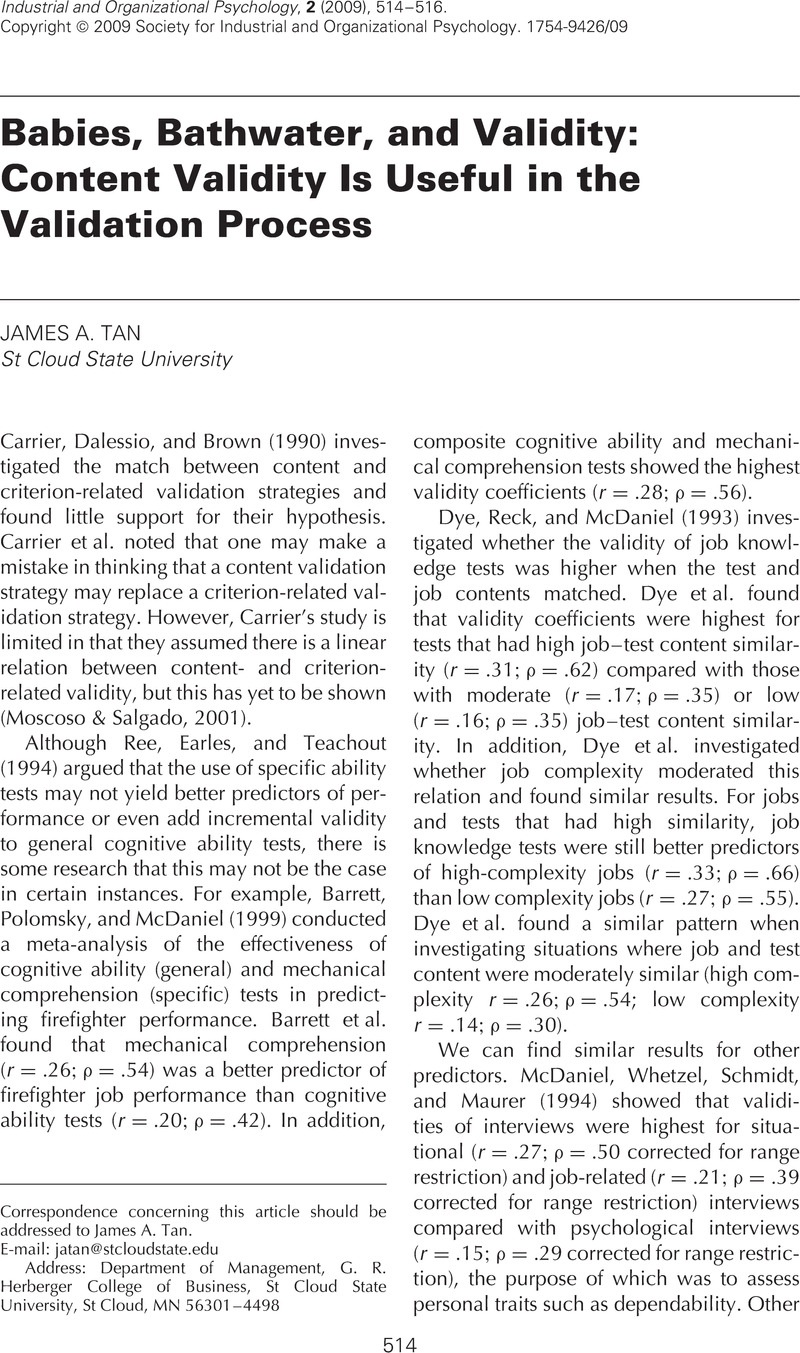Crossref Citations
This article has been cited by the following publications. This list is generated based on data provided by Crossref.
Murphy, Kevin R.
2009.
Is Content-Related Evidence Useful in Validating Selection Tests?.
Industrial and Organizational Psychology,
Vol. 2,
Issue. 4,
p.
517.
Brown, Matt I.
Grossenbacher, Michael A.
Martin‐Raugh, Michelle P.
Kochert, Jonathan
and
Prewett, Matthew S.
2021.
Can you crowdsource expertise? Comparing expert and crowd‐based scoring keys for three situational judgment tests.
International Journal of Selection and Assessment,
Vol. 29,
Issue. 3-4,
p.
467.
Fisher, David M.
Milane, Christopher R.
Sullivan, Sarah
and
Tett, Robert P.
2021.
A Critical Examination of Content Validity Evidence and Personality Testing for Employee Selection.
Public Personnel Management,
Vol. 50,
Issue. 2,
p.
232.



